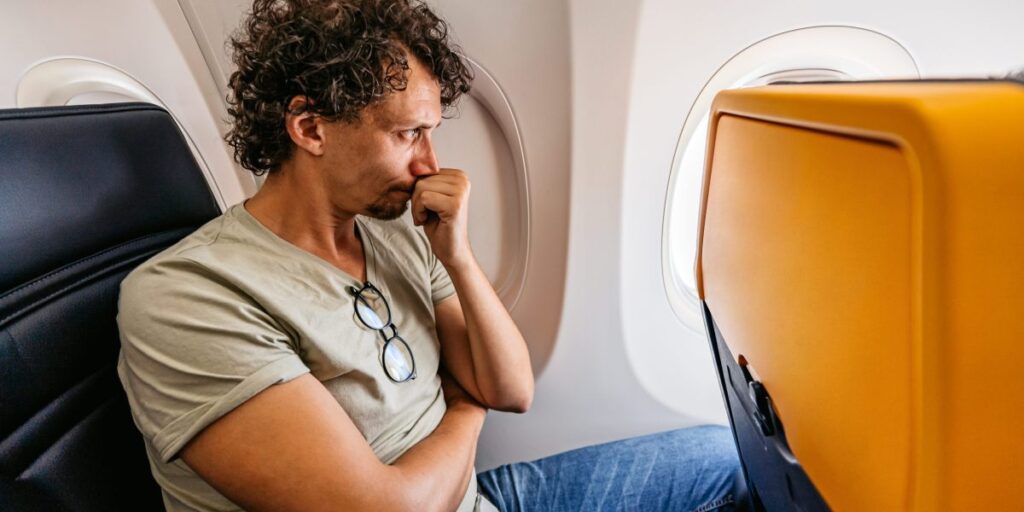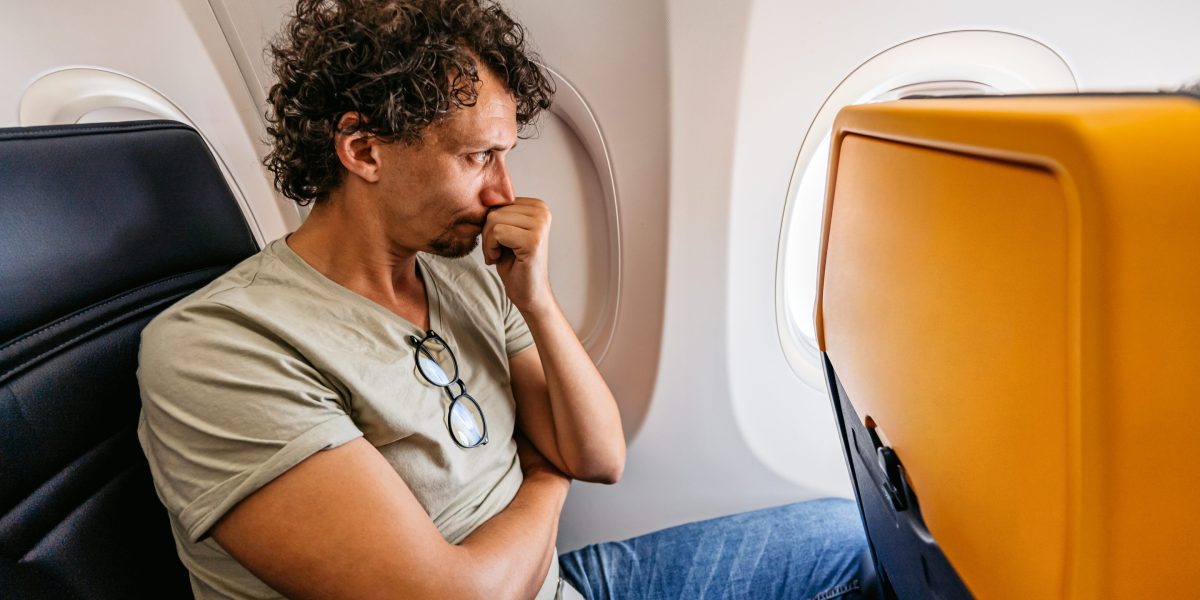Gen Z are ‘raw dogging’ flights for TikTok—but experts say it can cause thrombosis
TikTok’s latest travel trend is encouraging plane passengers to sit silently and stare ahead for hours on end.


Most people kill time on a plane by reading a book, watching a film or even taking a nap. But now, TikTok’s latest travel trend is encouraging plane passengers to sit silently and stare ahead for hours on end instead—or, as Gen Zers call it, “raw dogging”.
“Just rawdogged a 7 hour flight,” one male traveler, @oiwudini, posted his personal best on TikTok. “No headphones, no movie, no water… The power of my mind knows no bounds.”
The video has racked up over 14 million views, and there’s an endless stream of videos just like his, in which (mostly male) passengers spend hours mid-air abstaining from any in-flight entertainment.
Some raw doggers are even avoiding eating or drinking.
Even Manchester City soccer star Erling Haaland and British rapper, ArrDee have joined in on the act, posting videos of themselves staring intensely sans distractions on recent long-haul flights.
It’s not clear what started the trend—or why the in-flight map is the one exception to screen-free time—but it seems like for these clout-chasing passengers, showing off their mental stamina is the aim of the game.
Of course, there is no proof that they are actually spending the entire duration of their flight mindfully. But experts tell Fortune that cheating would be better for their health anyway.
Is “raw dogging” flights actually good for your brain?
In a world where we have constant demands on our attention, switching off and having a digital detox has its benefits.
“Not having access to emails, or the ability to ‘check in’ means that we can create the space to engage our minds in thinking about other activities and people,” Dr. Sophie Mort, Mental health expert at Headspace and clinical psychologist tells Fortune.
“When we grant ourselves the space to switch off, it offers an opportunity to focus on what genuinely makes us happy,” Mort says, adding that being constantly on can lead to stress, burnout, reduced life satisfaction, and even wreak havoc on your respiratory system, cardiovascular function, gastrointestinal health, and more.
“So switching off —even if just when you are traveling can be just the ticket when it comes to protecting our mental state.”
But, everything in moderation.
“Deciding not to watch a movie on a plane isn’t going to hurt you,” Mort concludes. “But abstaining from food, water, and sleep on a long haul flight—and then taking these behaviors into your day-to-day life, and extending these behaviors further—might.”
The dangers of “raw dogging”
In reality, moderation has gone out of the window here.
Experts told Fortune—that unlike your usual mindfulness exercises—raw dogging is dangerous because people are doing it for a badge of honor online, instead of to actually switch off and therefore taking meditating to the extreme.
It’s why Gin Lalli a psychotherapist specialist in anxiety, stress, and depression, and author of How to Empty Your Stress Bucket says she would not recommend it “at all”.
“I really have no idea why anyone would do it,” she says. “You’re better off sleeping than raw-dogging.”
Instead of making passengers feel zen, Lalli warns that the lack of stimuli, hydration, and nutrition can have the opposite effect and cause heightened stress levels, dizziness, negative thought patterns, and anxiety.
Aside from just making the journey more distressing for themselves self, raw doggers risk creating serious medical emergencies on flights.
Eloise Skinner, psychotherapist and author of But Are You Alive? warns that the extreme lack of stimulation could even cause disassociation or disembodiment—where one no longer feels connected with their own body.
“Especially on flights, movement is important, and complete lack of movement can come with risks of deep vein thrombosis.”
In the long run, she cautions that taking mindfulness to the extreme could lead to reawakening past traumas or altering one’s brain so that it dumbs down emotions—both positive and negative ones.
“A healthier approach would be to integrate periods of reflection with adequate hydration , nutrition and light entertainment,” Lalli echoes.
“Small manageable steps are always better than extreme practices. It’s more sustainable and will provide better and more positive outcomes.”





